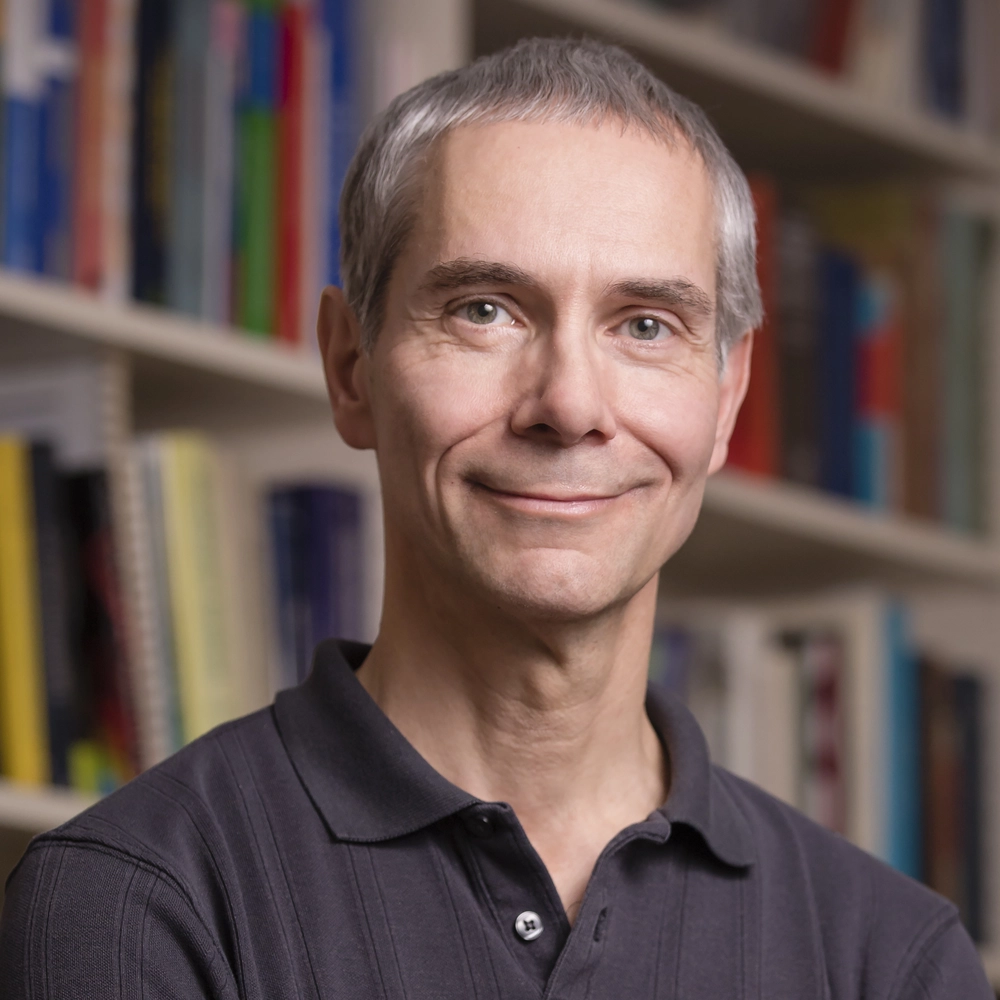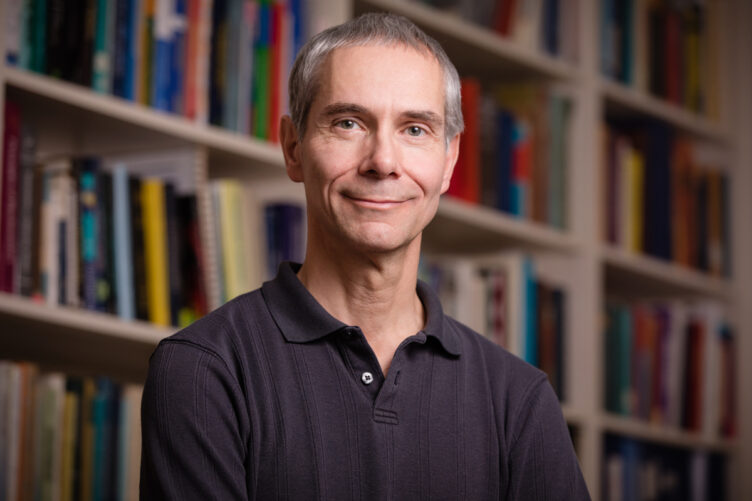

The American Chemical Society has announced that Martin Gruebele, professor emeritus of chemistry, is the 2026 recipient of the Peter Debye Award in Physical Chemistry.
The 2026 ACS national award winners were announced on Aug. 18. Recipients will be honored at an award ceremony on March 24, 2026, at the ACS Spring Meeting in Atlanta.
Established in 1960, the award encourages and rewards outstanding research of a theoretical or experimental nature in the field of physical chemistry.
Gruebele’s research uses experiments and computational modeling to study a broad range of fundamental problems in chemical and biological physics. Recent work includes the dynamics of carbon dots using STM and optical spectroscopy, protein dynamics in all-atom simulations of the cytoplasm and in live cells, fish swimming behavior, and molecular quantum scrambling, which extends the ideas behind the second law of thermodynamics to quantum mechanics.
Gruebele joined the faculty at the University of Illinois Urbana-Champaign in 1992 and was James R. Eiszner Endowed Chair in Chemistry from 2008 to 2024. He was also a professor of physics, professor of biophysics and quantitative biology, professor in the Center for Advanced Study and in the Carle-Illinois College of Medicine, a faculty member of the Beckman Institute, and a previous Head of the Department of Chemistry.
During his academic research career, Gruebele distinguished himself in chemical and biological physics. Using laser manipulation techniques and computational modeling, his work increased the understanding of protein folding in the test tube and in living cells, how energy flows through molecules, imaging excited states of nanoparticles, and how glass surfaces morph and move.
Gruebele earned his doctorate at the University of California at Berkeley in 1988. He has earned a number of awards for both teaching and research, including the ACS Nakanishi Prize, a Packard Fellowship, a Cottrell Scholar Award, and an Alfred P. Sloan Fellowship. He is a fellow of the National Academy of Sciences and the American Academy of Arts and Sciences and a member of the Deutsche Akademie der Naturforscher Leopoldina (German Academy of Sciences).